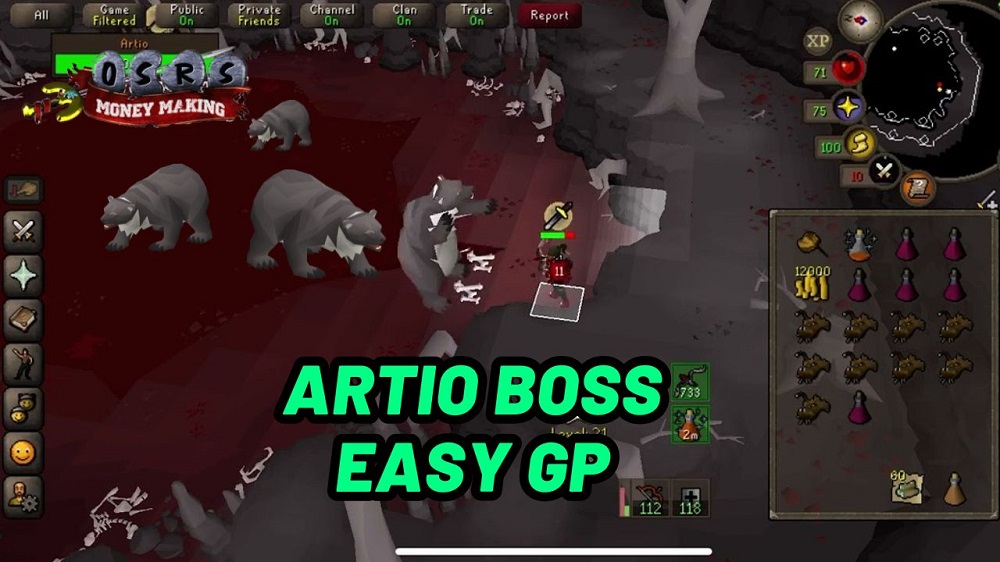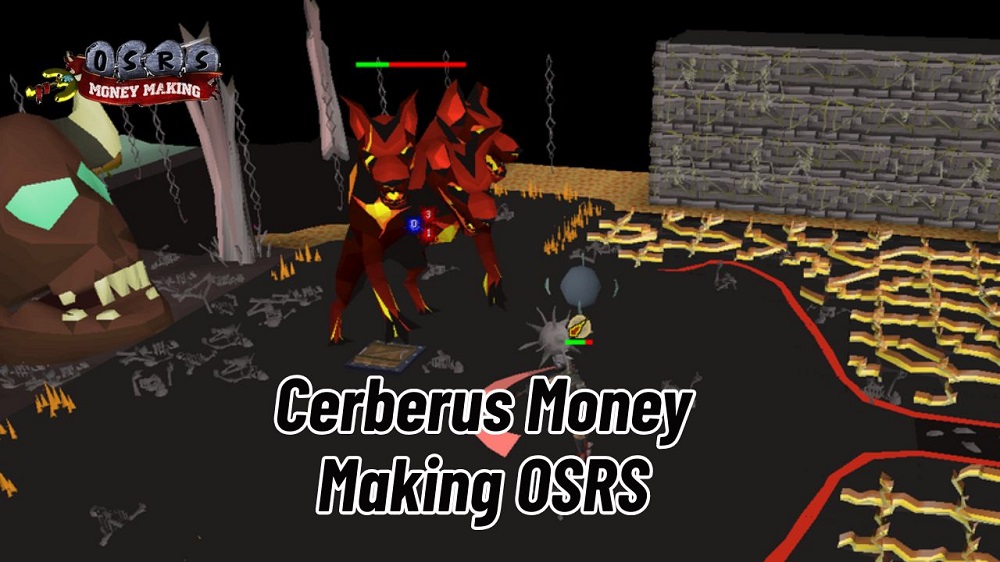Your cart is empty
Baking potatoes

Introduction to Baking Potatoes
In the bustling world of Old School RuneScape (OSRS), baking potatoes emerges as a humble yet effective money-making method that leverages basic cooking skills to generate a steady flow of GP. This approach involves gathering raw potatoes, baking them into cooked potatoes using a range or fire, and selling the finished product on the Grand Exchange for a profit. It’s a low-risk, beginner-friendly option that appeals to players with minimal combat or skill requirements, offering a practical way to fund early-game adventures or supplement income while training Cooking. Whether you’re a fresh-faced adventurer in Lumbridge or a seasoned player looking for a relaxed grind, baking potatoes provides a simple, scalable way to turn a common vegetable into a modest fortune with the right strategy.
Requirements
Baking potatoes is one of the most accessible money-making methods in OSRS, requiring little in the way of skills or resources. However, a few essentials will ensure you can start and maintain the process efficiently. Here’s what you need:
- Cooking Level: No minimum Cooking level is required to bake potatoes, as they can be cooked at level 1. However, a level of 7 or higher prevents burning them on a range, ensuring no wasted materials.
- Heat Source: Access to a range (e.g., in Lumbridge or Varrock) or a fire (made with logs and a tinderbox) is necessary. Ranges are preferred for their lower burn rate.
- Raw Potatoes: The core ingredient, obtainable through farming, monster drops, or the Grand Exchange.
- Inventory Space: A standard 28-slot inventory works fine, though proximity to a bank is key for handling large batches.
- Initial Capital: Optional but helpful around 10K-50K GP lets you buy raw potatoes in bulk to jumpstart the process.
- Membership: Not required, making this viable for free-to-play (F2P) players, though members benefit from faster farming and more banking options.
This method’s beauty lies in its simplicity no fancy gear, high stats, or membership barriers stand in your way. A tinderbox and some logs (if using fires) or a quick walk to a range are all you need to get cooking.
Sourcing Raw Potatoes
The success of baking potatoes hinges on acquiring raw potatoes cheaply and efficiently. OSRS offers several ways to obtain them, catering to different playstyles and account types. Here’s how to secure your spuds:
- Farming:
- Level: Requires level 1 Farming (accessible to all).
- Method: Plant potato seeds (~5 GP each) in allotment patches (e.g., Falador, Catherby, or Ardougne). With compost or ultracompost (~500 GP per bucket), expect 6-10 potatoes per patch after 40 minutes.
- Cost: Minimal (~15 GP per potato with ultracompost), but time-intensive.
- Monster Drops:
- Sources: Low-level monsters like goblins (Lumbridge), hobgoblins (Edgeville), or zombies (Varrock Sewers) occasionally drop raw potatoes. Hobgoblins are the best F2P option.
- Rate: Uncommon but free if you’re already training combat.
- Grand Exchange:
- Price: Raw potatoes typically cost 20-40 GP each, depending on demand.
- Speed: Fastest method buy hundreds or thousands instantly with a small GP investment (e.g., 50K GP for 1K potatoes).
- Shops:
- Location: The Miscellanian Food Shop or Wydin’s Food Store in Port Sarim sells raw potatoes for ~16 GP each, but stock is limited (10-20 per world).
- Use: Good for small batches or F2P players near Port Sarim.
Strategies:
- Farm your own for near-zero cost if you have patience and Farming levels.
- Buy from the Grand Exchange for speed and scale, ideal with 50K+ GP.
- Combine drops with purchases for a balanced approach, especially in F2P.
Farming offers the cheapest supply, while Grand Exchange purchases suit players prioritizing time over cost savings.
Baking Process
Turning raw potatoes into cooked potatoes is a straightforward task that requires minimal effort beyond access to a heat source. Here’s the step-by-step process:
- Gather Raw Potatoes: Fill your inventory with up to 28 raw potatoes from your chosen source (bank, farm, or drops).
- Locate a Heat Source:
- Range: Head to a range (e.g., Lumbridge Castle kitchen or Burthorpe’s Rogues’ Den). Preferred for no burn chance at level 7+ Cooking.
- Fire: Use a tinderbox on logs (e.g., oak or willow, ~50-100 GP each) to make a fire anywhere. Burns potatoes below level 7, wasting some.
- Cook the Potatoes: Left-click a raw potato in your inventory, then click the range or fire. Each potato cooks instantly, granting 15 Cooking XP, with a full inventory taking ~20-30 seconds.
- Check for Burns: If below level 7 and using a fire, some potatoes may burn (turning into burnt potatoes, worth 0 GP). On a range at level 7+, no burns occur.
- Bank the Goods: Once your inventory is full of cooked potatoes, deposit them at a nearby bank (e.g., Lumbridge or Falador) and grab more raw potatoes.
- Repeat: Keep cooking and banking until you’ve processed your desired amount.
It’s a repetitive, low-skill task that’s easy to master. Ranges streamline the process, while fires work in a pinch if you’re mobile or F2P.
Profit Analysis
The profit from baking potatoes comes from the difference between the cost of raw potatoes and the selling price of cooked potatoes, minus minor expenses like logs or teleport runes. Here’s a breakdown based on typical Grand Exchange prices as of April 2025:
| Item | Buy Price (GP) | Sell Price (GP) | Profit per Potato (GP) |
|---|---|---|---|
| Raw Potato | 30 | – | – |
| Cooked Potato | – | 70 | 40 |
- Per Inventory: Baking 28 raw potatoes yields 28 cooked potatoes. At 40 GP profit each, that’s 1.12K GP per inventory.
- Per Hour: Cooking ~100 inventories per hour (assuming quick banking) means 2800 cooked potatoes, or 112K GP profit per hour.
- Farming Scenario: If you grow your own potatoes (~5 GP each with seeds and compost), profit rises to 65 GP per potato, or 182K GP per hour for 100 inventories. This excludes farming time.
- Fire Costs: Using fires adds ~5 GP per potato (e.g., 100 GP oak logs for 20 potatoes), dropping profit to 35 GP each, or 98K GP/hour with bought potatoes.
Factors Affecting Profit:
- Burn Rate: Below level 7 on fires, 10-20% may burn, cutting profits (e.g., 90K GP/hour instead of 112K).
- Market Prices: If raw potatoes rise to 50 GP or cooked drop to 60 GP, profit shrinks to 10 GP each, or 28K GP/hour.
- Scale: Processing 5K+ potatoes at once smooths out price swings.
Expect 100K-120K GP per hour with bought potatoes on a range, or 150K-180K GP if self-farmed. It’s modest but reliable for low-level players.
Tips for Optimization
To squeeze the most GP out of baking potatoes, focus on reducing costs and speeding up the process. Here are some practical tips:
- Use Ranges: Stick to ranges (e.g., Lumbridge or Hosidius Kitchen for members) to avoid burns and save on logs, boosting profit by 5-10 GP per potato.
- Bank Proximity: Cook near a bank (e.g., Lumbridge Castle’s range and bank chest) to cut travel time, aiming for 120 inventories/hour.
- Bulk Farming: Plant multiple allotment patches (4-6) with ultracompost during downtime, harvesting 50-100 potatoes per trip to minimize seed costs.
- Buy Low, Sell High: Check Grand Exchange prices buy raw potatoes at 20-25 GP and sell cooked at 70-80 GP for an extra 10-20 GP profit per unit.
- Multi-Task: Cook while waiting for teleports, AFK training, or chatting to make use of idle time.
- F2P Efficiency: In F2P, use the Lumbridge range and bank chest, or hop worlds at Wydin’s shop for cheap potatoes when stock refreshes.
- Inventory Prep: Pre-fill your bank with stacks of raw potatoes to grab 28 at a time, reducing restock delays.
With these tweaks, you can push toward 130K-150K GP/hour with purchases, or 200K GP/hour with farming, making this a surprisingly decent earner for its simplicity.
Conclusion
Baking potatoes may not dazzle with massive profits or flashy combat, but it shines as a dependable, low-effort money-making method in OSRS. With profits ranging from 100K-200K GP per hour depending on your sourcing strategy, it’s an excellent choice for beginners, F2P players, or anyone looking to train Cooking while earning GP on the side. Its accessibility no high levels or risky Wilderness treks required combined with the ease of baking and banking, makes it a staple for early-game wealth-building. By farming your own potatoes, using a range, and optimizing your routine, you can turn this everyday veggie into a steady income stream. So grab some spuds, fire up a range, and start baking your coin pouch will grow, one potato at a time.







